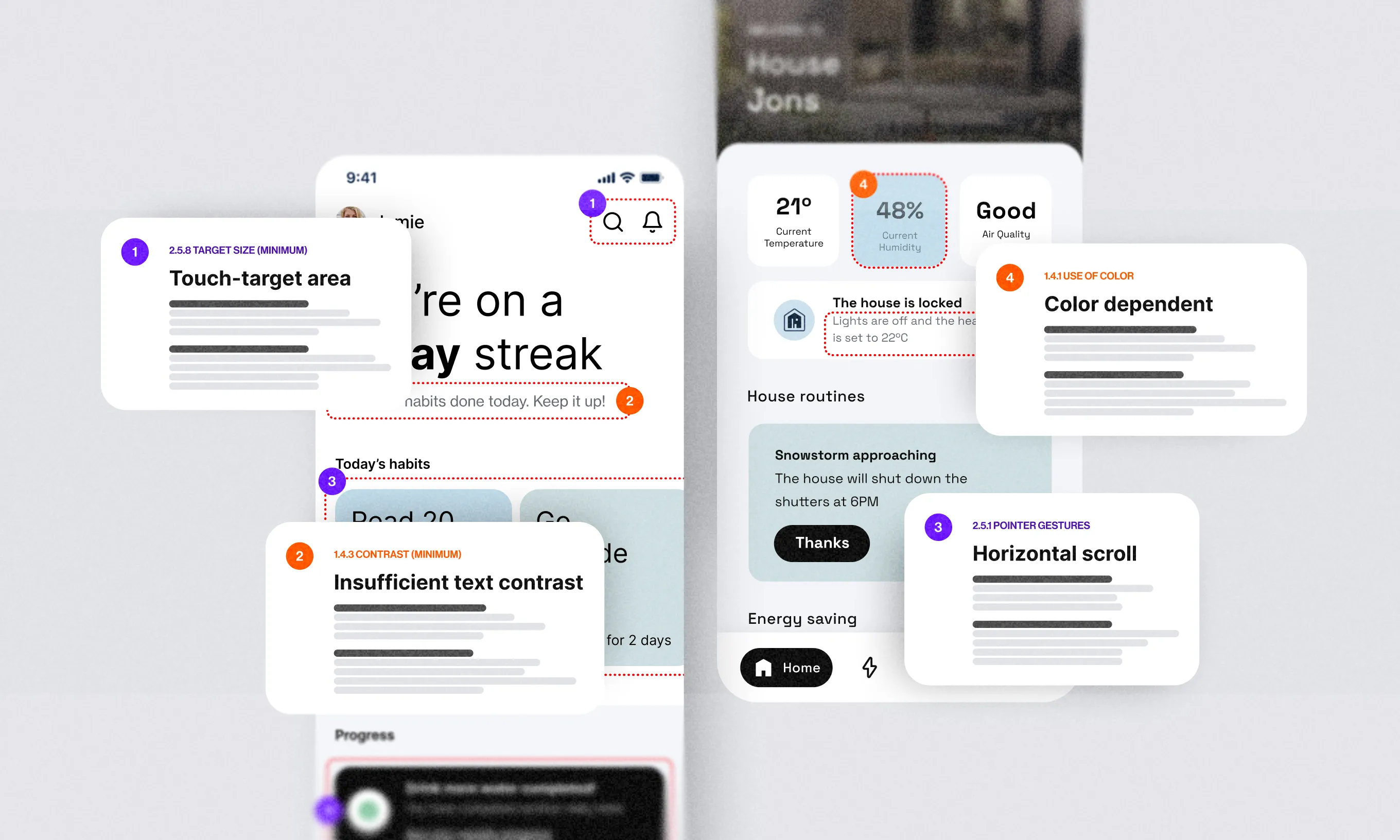Multitasking can feel like running a kitchen during rush hour, but with the right strategies, you can keep the chaos under control. Learn how to stay focused, manage multiple projects, and serve up success in software testing and life in general.
Imagine you’re in the middle of a fast-paced kitchen, just like in the game Overcooked. Orders are piling up, the stove’s on fire, ingredients are flying everywhere, and chaos reigns as your team scrambles to get everything done. It’s a whirlwind of activity that demands teamwork, communication, and sharp time management.
If you’re a software tester juggling multiple projects, this scenario might feel all too familiar. In fact, no matter your job role, multitasking can often feel like trying to master Overcooked, as you balance tasks, deadlines, and stakeholders. The chaos is real, but instead of serving meals, you’re delivering top-notch apps.
The good news? There are strategies to help you manage projects without feeling overwhelmed. So, grab your spatulas, joysticks, and laptops, and let’s dive into the recipe for successfully handling multiple projects.
Realistic estimations: promise only what you can deliver
Many of us are guilty of giving overly optimistic estimates. It feels great to hear the excitement in the client’s voice when you promise a quick turnaround, but that can quickly turn your work into an Overcooked nightmare. It’s like promising to deliver a stew in an hour when it clearly needs three.
Early in my career, I made this mistake often. The team would ask if I could finish testing in a week, and I’d say yes, even though I was only scheduled part-time on the project and was still learning the ropes. Sugar doesn’t go into soup, and it’s perfectly ok to say “No” to a suggestion even if you’re nervous about it.
Set clear expectations, be transparent about your schedule, and don’t hesitate to adjust timelines. A chef knows the exact cooking time for each type of pasta, and you need to be clear about how long a task will take.
As you might expect, my optimistic estimates led to stress and long hours. After discussing this with my mentor, I learned to give more realistic estimates, taking both my availability and the project’s needs into account.
Experience plays a huge role here, and accurate time estimation is a skill that improves with time. But here’s a formula that can help when you’re just starting out:
Your Estimation = Calculated Time + Buffer + Δ
First, use a stopwatch to track the exact time needed for specific tasks and write it down. This way, your future estimates will be data-driven, and you’ll feel more confident about them.
Second, always include a buffer. We all know software development doesn’t always go according to plan, and something can easily go wrong.
Lastly, remember that estimates aren’t set in stone. If new features are added or requirements change, the estimate should, too. Make sure to communicate that to the team.
In short, set clear expectations with your team, be transparent about your schedule, and don’t hesitate to adjust timelines when new tasks arise. Just as a chef knows the exact cooking time for each type of pasta, you need to be clear about how long each task will take.
Effective communication: say it clearly and say it again
Communication is just as important for a project’s success as testing or development. When it comes to improving it, there is no lack of advice available online. However, this time, we’ll turn to a timeless source of guidance.
In the 1970s, the renowned philosopher and linguist Paul Grice studied the principles of effective communication and proposed four conversational maxims. Decades later, they still offer some of the best advice on how to communicate clearly and cooperatively.
Maxim of quality: be truthful
Clear communication starts with honesty. We should provide information that is truthful and backed by evidence. For example, when giving estimations, support them with solid reasoning. This builds your confidence in the estimates you provide and helps your team better understand the logic behind them.
Maxim of quantity: be informative
Effective communication means finding the right balance of information – enough to make your point clear but not so much that it overwhelms others. In daily meetings, for example, keep your updates short and to the point. Share the key information needed to move forward without diving into unnecessary details so everyone stays aligned.
Maxim of relation: be relevant
Focus on what’s important at the moment. It’s easy to stray into other topics, but doing so can lead to confusion. Prioritize what needs to be discussed and save any off-topic points for another time, ensuring the conversation stays relevant and productive.
Maxim of manner: be clear
Say what you need to say in a straightforward, easy-to-follow way. When you’re juggling multiple projects, this clarity becomes even more crucial. Preparing for meetings and organizing your thoughts beforehand ensures your points are easy to understand and reduces the risk of misunderstandings.
One additional principle I’ve found helpful is the value of repetition. Just as chefs repeat orders in the kitchen to avoid mistakes, don’t hesitate to reinforce key points during a project. Reiterating your capacity or repeating your estimates ensures that everyone stays on the same page, even if it feels repetitive.
Embrace focus mode: don’t try to fry eggs and bake cakes at the same time
Just like trying to cook too many dishes at once leads to chaos in the kitchen, multitasking too many projects and tasks will reduce your efficiency. To stay productive, turn off your notifications, put on your headphones to signal to your co-workers that you’re not available for chitchat, and dedicate focused blocks of time to each project.
For me, this meant scheduling specific hours for different projects and adding everything to my calendar. Not only does this help you organize your day better, but it also lets your colleagues know that you’re in focus mode.
Try to fully commit to one task at a time instead of jumping between meetings, debugging, and answering emails. This requires consciously tuning out everything else during that time slot, which can feel uncomfortable at first— like you’re doing something wrong—but it’s key to maintaining both the quality of work and your sanity.
Remember, people will always prefer a thoughtful, well-considered response over a rushed one. After all, trying to slice onions, make smoothies, and bake eggs all at once can only result in banana-flavored eggs salted with tears.
The power of mentorship: your superhero in the kitchen
Every great chef needs a mentor in the kitchen, and we all need one in our careers. Mentors offer invaluable guidance, providing a bird’s-eye view of your projects when you’re too caught up in the day-to-day details to see the bigger picture.
Just as a master chef guides their apprentices through the ins and outs of the kitchen, a good mentor helps you navigate your professional challenges, offering wisdom and perspective when you need it most.
Think about it: have you ever missed a bug or made a mistake so frustrating that you felt the urge to quit and flee to another planet? I know I have—especially early in my QA career. That’s exactly when your mentor steps in. Regular communication is key; at Infinum, we have weekly one-on-ones with our team lead and frequent Slack check-ins. This helped me stay calm, clear-headed, and on top of my workload.
Being open and honest is essential. If you make a mistake, don’t shy away from it—talk about it. Your mentor can support you in meetings and help you turn those mistakes into learning opportunities. For me, learning how to give realistic estimates instead of overly optimistic ones was a game-changer, thanks to the honest conversations I had with my mentor.
Just as a master chef guides their apprentices through the ins and outs of the kitchen, a good mentor helps you navigate your professional challenges, offering wisdom and perspective when you need it most.
Importance of documentation: your cookbook for success
Documentation is your secret ingredient for staying on top of multiple projects. It helps you keep track of what’s been done, what still needs doing, and ensures others can pick up where you left off.
Whether it is well-written test cases or detailed notes, documenting your process is crucial. Don’t push it off until tomorrow—just as README files and comments in code guide developers through a project, thorough documentation should be a non-negotiable part of QA as well. Trust me, your future self will thank you when you need to recall something weeks later.
The moment I truly realized the value of dedicating time to documentation was when I was coming off a project and onboarding a colleague. Having everything properly documented made the handover much easier for both of us. In addition to test cases and regular documentation, I created a project “cookbook.” I strived to document everything: who’s on the team, who the experts in different areas are, the processes we followed, the necessary links, and even the time it took me to complete certain tasks to help my colleague with their own time estimates.
Having clear instructions in one place—a project cookbook—makes onboarding easier and allows your colleague to step into the kitchen with confidence.
Turning chaos into success
Managing multiple projects can often feel like navigating the chaos of an Overcooked kitchen and constantly verging on the brink of disaster. However, with the right strategies in place, you can keep the madness in check.
Luckily for us, there are some universal principles that apply both to the Overcooked game and development projects. By leaning on your mentor, setting realistic expectations, communicating clearly, focusing on one project at a time, and keeping thorough documentation, you can handle the heat in the tech kitchen.
So, the next time you find yourself overwhelmed by the chaos of multiple projects, take a deep breath, channel your inner chef, and remember these strategies. You’ll be serving up success in no time!










